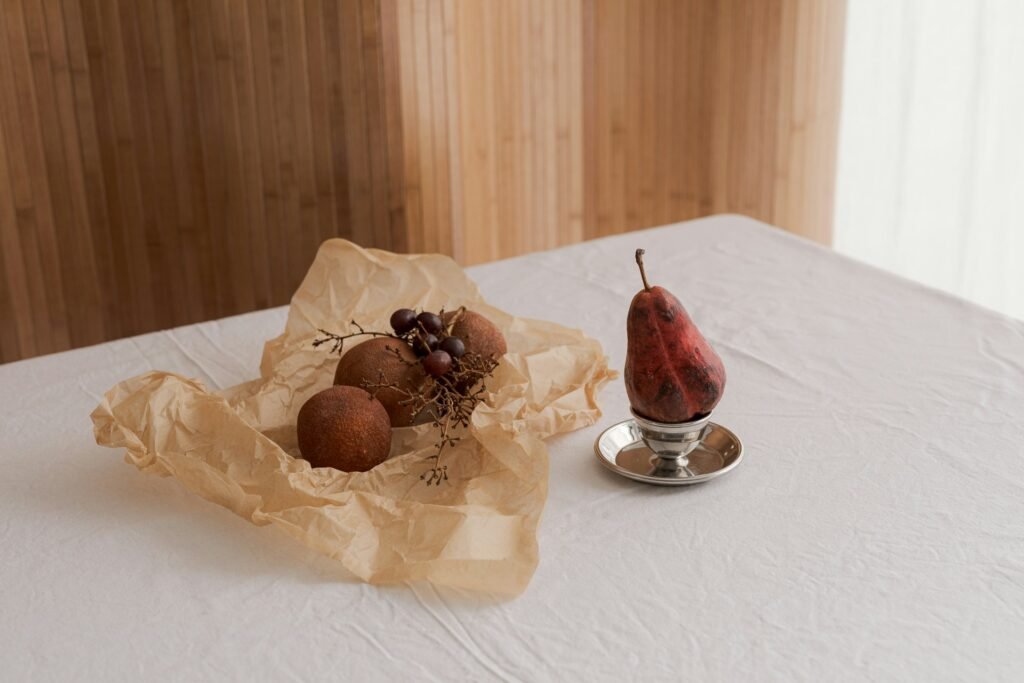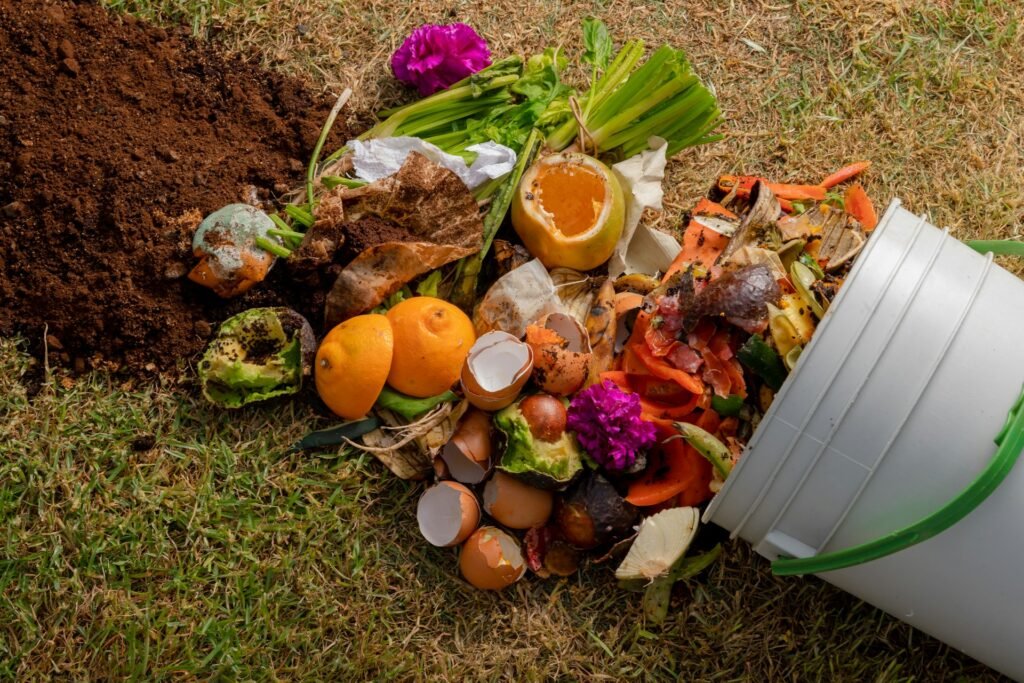Composting is a vital aspect of reducing waste and nurturing gardens, and coffee filters, often overlooked, play a significant role in this natural process. As many seek sustainable practices, the question arises: can you compost coffee filters? The answer is yes, but the key is to understand the types of filters and the best practices for effective decomposition. Coffee filters, when added to compost, contribute to the overall health of the resulting soil amendment, provided they are used correctly within the composting system.
Understanding the Basics of Composting Coffee Filters
Composting coffee filters is an extension of the natural process that recycles organic waste into nutrient-rich soil. Effective decomposition within a compost pile requires a balance between green materials, which provide nitrogen, and brown materials, such as coffee filters, which supply carbon. This balance ensures that microorganisms have the necessary elements to break down the waste, transforming it into valuable compost for gardens and landscapes.
Discerning Between Paper and Synthetic Filters
When composting coffee filters, it’s crucial to discern between paper and synthetic varieties. Coffee filters made from paper are organic materials that easily break down, becoming part of a well-balanced and nutrient-rich compost for your garden. However, synthetic materials, sourced from a variety of materials, may not decompose as readily and can lead to environmental concerns. Using paper filters, especially those not inadvertently contributing to deforestation, alongside other organic waste like fruit peels, can keep your compost pile moist and speed up the decomposition process.
The Environmental Impact of Synthetic Filters
Synthetic coffee filters, made from a variety of materials that may include plastics, are not suitable for composting as they do not break down into organic materials that benefit the soil. The inability of synthetic filters to decompose can lead to environmental pollution and a missed opportunity to create nutrient-rich compost for your garden. It’s essential to recognize the type of filter you’re using to ensure you’re not introducing non-biodegradable items into your compost pile.
By choosing paper filters, you are opting for a product that will integrate into the compost, contributing to the creation of a well-balanced and nutrient-rich soil amendment. Keeping the compost pile moist and introducing elements that speed up the decomposition process, such as fruit peels or coffee grounds, can mitigate the negative impact of synthetic filters by avoiding their use altogether.
The Debate: Bleached vs Unbleached Coffee Filters
The composition of coffee filters can influence their compostability. Unbleached coffee filters are considered more environmentally friendly than their bleached counterparts. These unbleached paper filters maintain their natural brown color and can be composted with ease, adding to the nutrient content of the compost pile or bin. The absence of chemical whitening processes makes unbleached coffee filters a preferred choice for those aiming to create an organic compost mixture.
The Role of Biodegradability in Composting Filters
Biodegradability is a cornerstone of composting, ensuring that materials break down naturally in the environment. When it comes to composting coffee filters, their biodegradable qualities play a pivotal role. A filter’s ability to decompose affects not just the composting timeline but also the end quality of the compost. Filters made from natural fibers integrate seamlessly into compost piles, contributing to the nutrient cycle without leaving behind harmful residues.

Examining Coffee Filters’ Contribution to Compost Quality
Adding coffee filters to your compost introduces a balance of carbon, an essential element in composting. The fibers in the filters help aerate compost materials, crucial for maintaining appropriate moisture levels. Moreover, the amounts of coffee grounds and filters combined contribute to the overall richness and fertility of the compost, enhancing soil structure and nutrient availability.
The Nutrient Profile of Coffee Grounds and Filters
Together, coffee grounds and filters enrich compost with a spectrum of nutrients. While grounds are a source of nitrogen, an essential nutrient for plant growth, filters provide carbon, balancing the nitrogen-rich kitchen scraps and garden soil. This synergy of elements makes coffee filters and grounds a beneficial addition to any organic garden compost bin.
Introducing nitrogen to the compost via coffee grounds stimulates the growth of beneficial microorganisms that break down organic matter. Filters, rich in carbon, act as a bulking agent that allows air to flow and moisture to be absorbed, creating an optimal environment for composting. This balance between nitrogen from grounds and carbon from filters accelerates decomposition, transforming kitchen scraps and grass clippings into a fertile amendment for garden soil.
Evaluating Acidity Levels in Coffee Grounds
While disposable coffee filters are largely neutral, the coffee grounds they contain can be acidic. This acidity might raise concerns; however, it’s generally minimal and can even be beneficial for compost coffee filters. The numerous benefits include fostering soil health by encouraging the presence of beneficial microorganisms that thrive in a slightly acidic environment.
Composting coffee filters alongside other compost materials can naturally balance the pH levels within the compost pile. The key to efficient composting is diversity; a blend of food waste, wood chips, and soil additives works with coffee filter fibers to neutralize pH over time. This creates a hospitable environment for decomposition and nutrient absorption.
Adjusting the compost mix to include both acidic and alkaline materials ensures the pH remains conducive to microbial activity. As such, compost piles that incorporate coffee filters benefit from their carbon content while their potential acidity is mitigated, leading to a rich, balanced soil amendment suitable for a variety of garden applications.
Accelerating the Decomposition With Worms and Cellulose Breakdown
Composting requires the action of microorganisms and, for an efficient breakdown, worms can play a crucial role, especially when composting coffee filters which are primarily composed of cellulose. These creatures digest the material, aerating the compost and speeding up the process. Introducing worms to your compost bin is a simple way to enhance cellulose degradation, ensuring that your coffee filters become part of the nutrient-rich humus more swiftly.
Practical Techniques for Composting Coffee Filters
To compost coffee filters effectively, integrate them into your compost bin along with a balanced mix of brown and green materials. This ensures a proper carbon-to-nitrogen ratio, which is essential for the decomposition of organic matter.
Step-By-Step Guide to Adding Filters to Your Compost Pile
Start by tearing coffee filters and grounds into smaller pieces before adding them to the compost bin. Alternate layers of coffee filters with kitchen scraps, grass clippings, and garden soil enrich the compost with essential nutrients for plant growth, fostering a thriving organic garden.
When composting coffee grounds and filters, the timeframe for decomposition can vary. Paper coffee filters, being carbon-rich materials, may decompose within a few weeks to a couple of months, depending on conditions. Pairing them with nitrogen-rich kitchen scraps can make the composting process more efficient, similar to the breakdown of dried leaves and wood chips.
Dos and Don’ts of Composting Coffee Filters and Grounds
Do include coffee filters and grounds in your compost, but don’t forget to balance them with other materials. Avoid adding synthetic filters as they do not break down easily.
An optimal carbon-to-nitrogen ratio is crucial for composting coffee grounds and other materials efficiently. While coffee grounds are rich in nitrogen, paper coffee filters provide the carbon necessary for microbes to thrive. Ensuring a balance between these elements promotes a healthy, active composting process.
Mitigating Environmental Concerns With Eco-Friendly Alternatives
Choosing reusable filters over disposable ones can significantly minimize the environmental impact of your daily cup of coffee.
Exploring Reusable Coffee Filters as a Sustainable Choice
Reusable filters not only enhance the tasting coffee experience but also reduce the reliance on single-use paper filters, curbing waste.
Transitioning to reusable coffee filters, such as those made from stainless steel or other metal filters, is a significant step in reducing waste. By eliminating the need for disposable coffee filters, individuals contribute to a decrease in landfill accumulation and resource depletion, affirming a commitment to sustainability with every cup of coffee.
Repurposing Coffee Grounds Beyond Composting
Aside from adding to the compost bin, composting coffee grounds can offer numerous benefits directly in your garden soil.
Disposable coffee filters and grounds can find new life in gardening applications, providing numerous benefits such as deterring pests and enriching the soil with valuable nutrients.

The Broader Picture: Coffee Filters’ Environmental Footprint
Every choice in our daily routine, including coffee filters, affects the environment.
By composting coffee filters, individuals contribute to reducing waste that ends up in landfills, promoting a sustainable lifestyle, and supporting the health of their organic garden.
Composting natural materials like filters and tea bags reduces landfill volume, decreasing methane emissions and conserving space for non-compostable waste.
The Intersection of Coffee Culture and Environmental Stewardship
Embracing composting practices reflects a merging of coffee culture with a dedication to environmental stewardship, illustrating a mindful approach to everyday habits.
Opting for coffee filter brands that prioritize sustainable practices is essential for eco-conscious consumers. Look for filters constructed from natural materials, free from chemicals and synthetic fibers. These options not only decompose effectively but also minimize environmental impact, aligning with the ethos of reducing waste. Always verify certifications indicating biodegradability to ensure the filters and tea bags you select align with composting goals.
Taking Action: Your Role in the Composting Journey
Your individual choices can significantly influence the success of composting efforts. By incorporating filters and tea bags made from natural materials into your compost, you contribute to a healthier, more sustainable cycle. Commit to regularly adding these items to your compost pile, monitor their breakdown process, and enjoy the satisfaction of creating nutrient-rich soil from what was once waste.
Getting Started With Composting at Home
Beginning your composting journey at home can be a simple and rewarding venture. Start by collecting organic waste, including food scraps, filters, and tea bags. Place these compostable materials in a designated bin, ensuring a balance of green and brown matter to optimize the breakdown process. Regularly turn the pile to aerate the soil, speeding up the transformation into fertile compost.
Community Involvement in Sustainable Practices
Community engagement plays a vital role in amplifying the impact of sustainable practices. Join or initiate local composting programs, share knowledge and resources, and encourage neighbors to compost their coffee waste, including filters and tea bags. Collective action not only fosters a sense of shared responsibility but also significantly reduces the community’s carbon footprint.
Educational Resources for Composting Beginners
For those new to composting, a wealth of educational resources is available to guide you. From local workshops to online tutorials, learn how to properly break down coffee filters, compostable material, and balance your compost pile. These resources help demystify the process, empowering you to turn coffee waste and filters into smaller pieces that add valuable nutrients to your garden.
Final Thoughts on Coffee Filter Composting
Composting coffee filters is a small but impactful step in a broader environmental movement. By choosing to compost these everyday items, you contribute to reducing waste and creating nutrient-rich soil. It’s important to recognize the cumulative effect of such eco-friendly choices and to continue seeking ways to integrate sustainable practices into everyday life.
Composting is more than a mere activity; it’s a lifestyle choice promoting environmental stewardship. Integrating filters and tea bags, alongside food scraps, into your compost bin helps balance the carbon-to-nitrogen ratio, vital for healthy compost. As prices and awareness of eco-friendly options increase, more individuals can make conscious choices to aerate the soil and nurture the planet.


